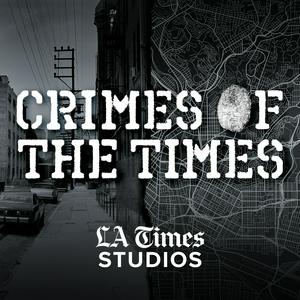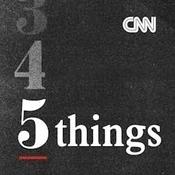58 episodi
- LA Times Studios producers are excited to share a new podcast from our friends at Pushkin -- Valley of Shadows -- A new true crime podcast that digs into a nearly 30-year old secret buried in the California desert. On June 11, 1998, Los Angeles County Sheriff’s Deputy Jon Aujay set out for a run in California’s Devil’s Punchbowl park — and never came back. Aujay has yet to be found. The Sheriff’s Department rules Aujay’s disappearance a suicide, but friends, family, and fellow deputies insist the story doesn’t add up. Instead, they believe Aujay may have stumbled into the Mojave Desert’s criminal underworld — where outlaw biker gangs crank out methamphetamine and local cops operate on both sides of the law. Through exclusive interviews, revealing wiretaps, and buried police files, journalists Hayley Fox and Betsy Shepherd explore one of Southern California’s most mysterious missing person cases. In Valley of Shadows, they ask: What is the Los Angeles County Sheriff’s Department hiding? Find Valley of Shadows wherever you get podcasts.
- Please enjoy this specially featured episode of LA Times Studio's Rebuilding LA. What’s next for L.A. in the wake of its recent wildfires? In “Rebuilding Los Angeles,” broadcast journalist Kate Cagle examines the systems that failed us, the path forward and the innovative fire recovery efforts making L.A. more resilient. This episode features prominent city developer Rick Caruso and a conversation about his role in the rebuilding efforts as the Palisades try to find their new normal nearly a year after the fires. FEEDROP
- Attorney Frank Carson spent decades defending the accused in California's Central Valley. He made powerful enemies among law enforcement. When they put him on trial for murder, he insisted he was being framed. He was acquitted after a lengthy trial, but his widow says the ordeal destroyed his health and hastened his death. As part of a malicious prosecution lawsuit, the man who once served as the state’s star witness against Carson admitted his testimony was a pack of lies. In April, Stanislaus County agreed to pay $22.5 million to settle the suit—one of the largest payouts of its kind.
- In 1986, 29-year-old Sherri Rasmussen was just starting her married life when she was brutally murdered in her Van Nuys home. The LAPD called it a “burglary gone bad,” ignoring red flags pointing to one of their own for years. Detective Stephanie Lazarus might have gotten away with it if she hadn’t left behind a key piece of evidence.
- When a helicopter crash killed actor Vic Morrow and two children on the set of Twilight Zone: The Movie, the filmmakers called it an unforeseeable accident. An LA County Sheriff’s detective saw something else: broken laws, reckless risks, and an A-list director who ignored warnings.
Altri podcast di Notizie
Podcast di tendenza in Notizie
Su Crimes of the Times
L.A. Times reporter Christopher Goffard of “Dirty John” is back with another riveting podcast from L.A. Times Studios. In “Crimes of the Times,” Goffard goes deep behind the scenes of a new story each week, cutting through common myths and misconceptions to uncover what really happened in the most compelling cases from L.A. and beyond.
Sito web del podcastAscolta Crimes of the Times, Global News Podcast e molti altri podcast da tutto il mondo con l’applicazione di radio.it

Scarica l'app gratuita radio.it
- Salva le radio e i podcast favoriti
- Streaming via Wi-Fi o Bluetooth
- Supporta Carplay & Android Auto
- Molte altre funzioni dell'app
Scarica l'app gratuita radio.it
- Salva le radio e i podcast favoriti
- Streaming via Wi-Fi o Bluetooth
- Supporta Carplay & Android Auto
- Molte altre funzioni dell'app


Crimes of the Times
Scansione il codice,
scarica l'app,
ascolta.
scarica l'app,
ascolta.






























